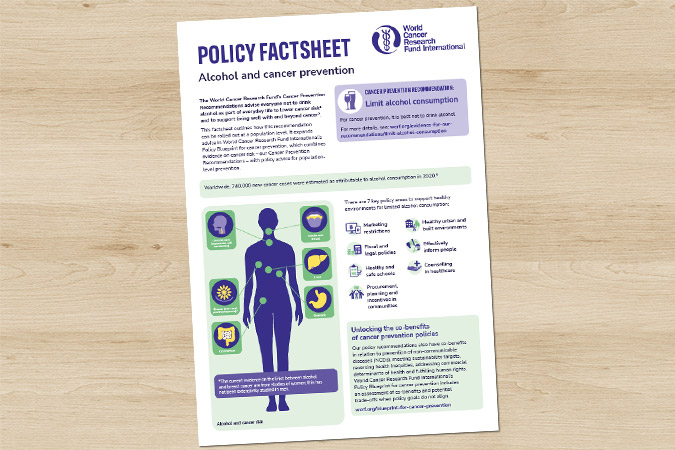This case study for international policymakers and advocates shares key learnings, insights, barriers and enablers from World Cancer Research Fund’s June 2025 Cancer Prevention Action Week campaign, which raised awareness of the link between alcohol and cancer and called for a National Alcohol Strategy for England.

Get the latest Policy updates
Receive the latest on our databases, publications and how we’re getting involved in cancer prevention policy around the world
This document sets out the strategic priorities for World Cancer Research Fund’s International’s science and policy work.

Sign up for regular updates
Get our email newsletter direct to your inbox and be first to hear about our research
This advocacy brief sets out the urgent need for action on NCDs – to adopt 5 key policy recommendations and commit to their inclusion in the Political Declaration.
This factsheet outlines how our Recommendation to follow our Recommendations after a cancer diagnosis can be rolled out at a population level. It expands advice in our Policy blueprint for cancer prevention, which combines evidence on cancer risk – our Cancer Prevention Recommendations – with policy advice for population-level prevention.
Published January 2025.
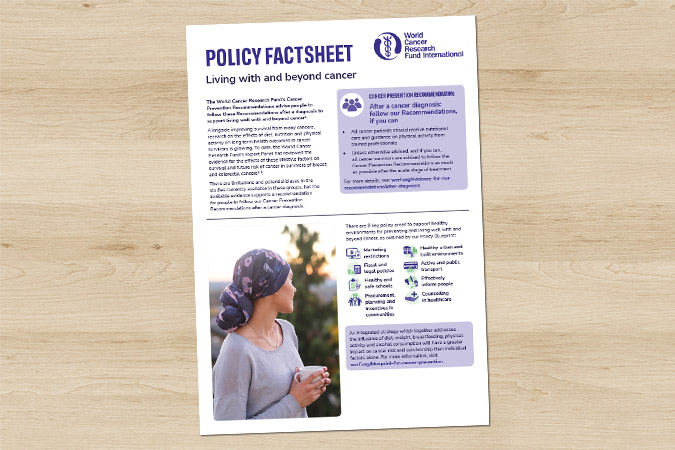
This factsheet outlines how our Recommendation to not use supplements for cancer prevention can be rolled out at a population level. It expands advice in our Policy blueprint for cancer prevention, which combines evidence on cancer risk – our Cancer Prevention Recommendations – with policy advice for population-level prevention.
Published January 2025.
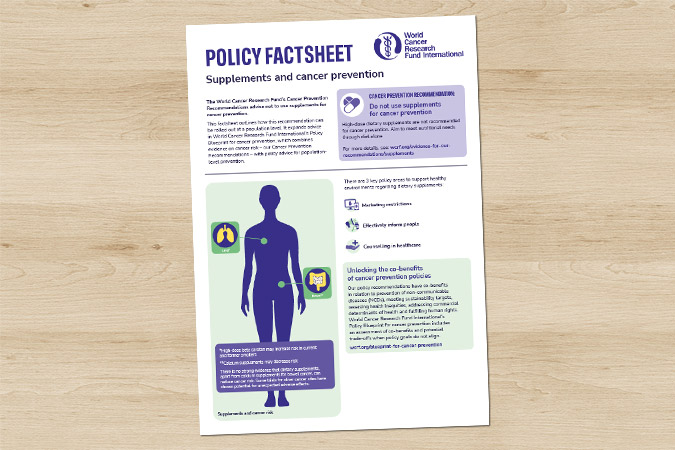
This factsheet outlines how our Recommendation to limit consumption of red and processed meat can be rolled out at a population level. It expands advice in our Policy Blueprint for cancer prevention, which combines evidence on cancer risk – our Cancer Prevention Recommendations – with policy advice for population-level prevention.
Published January 2025.
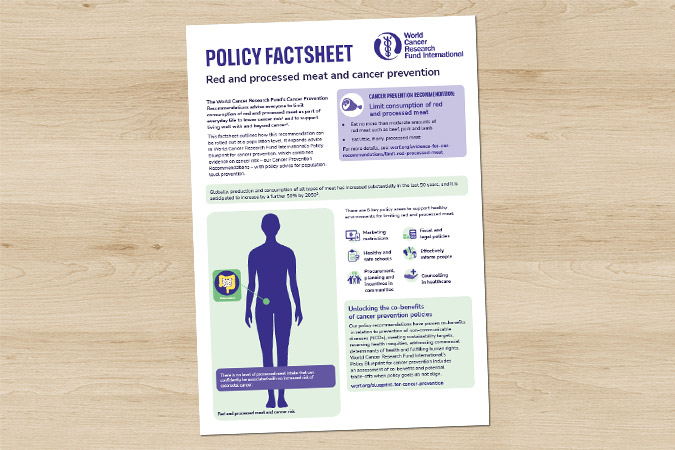
This factsheet outlines how our Recommendation to limit consumption of “fast foods” and other processed foods high in fat, starches and sugars, can be rolled out at a population level. It expands advice in our Policy blueprint for cancer prevention, which combines evidence on cancer risk – our Cancer Prevention Recommendations – with policy advice for population-level prevention.
Published January 2025.
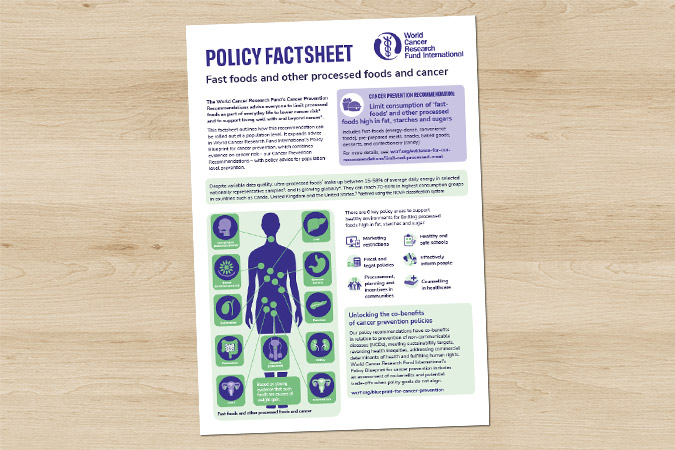
This factsheet outlines how our Recommendation to limit consumption of sugar-sweetened drinks can be rolled out at a population level. It expands advice in our Policy blueprint for cancer prevention, which combines evidence on cancer risk – our Cancer Prevention Recommendations – with policy advice for population-level prevention.
Published January 2025.
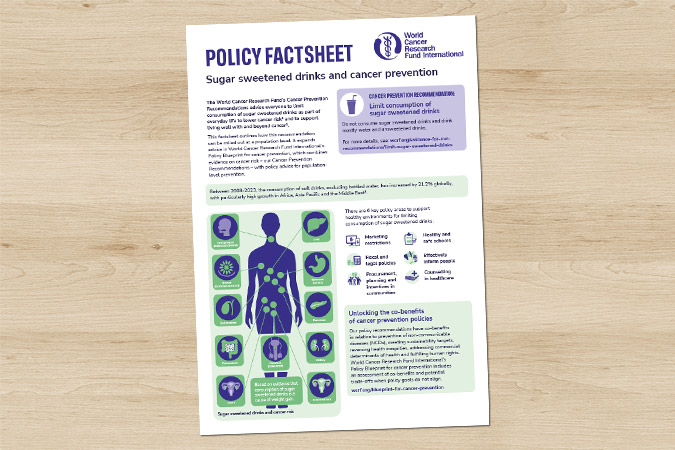
This factsheet outlines how our Recommendation to eat a better diet, rich in wholegrains, vegetables, fruit and beans, can be rolled out at a population level. It expands advice in our Policy blueprint for cancer prevention, which combines evidence on cancer risk – our Cancer Prevention Recommendations – with policy advice for population-level prevention.
Published January 2025.
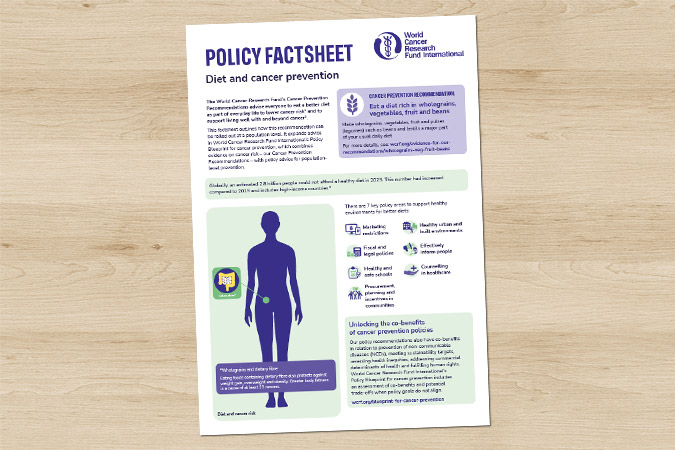
This factsheet outlines how our Recommendation to be physically active can be rolled out at a population level. It expands advice in our Policy blueprint for cancer prevention, which combines evidence on cancer risk – our Cancer Prevention Recommendations – with policy advice for population-level prevention.
Published January 2025.
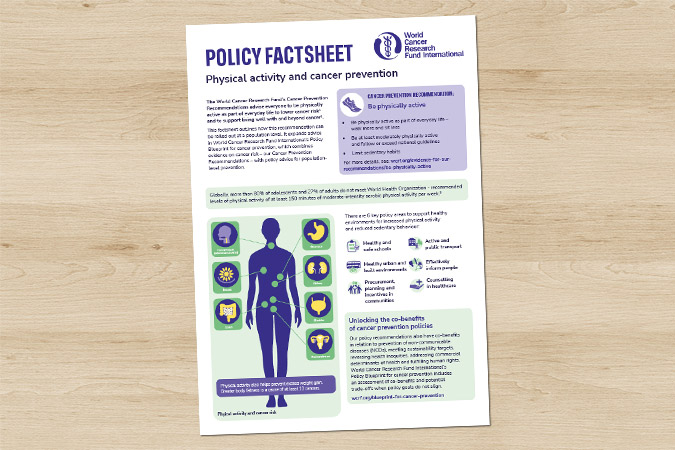
This factsheet outlines how our Recommendation for mothers to breastfeed their babies can be rolled out at a population level. It expands advice in our Policy blueprint for cancer prevention, which combines evidence on cancer risk – our Cancer Prevention Recommendations – with policy advice for population-level prevention.
Published January 2025.
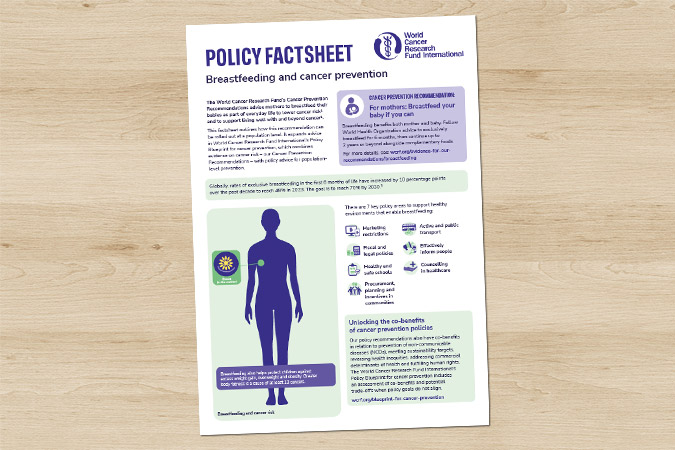
This factsheet outlines how our Recommendation to limit alcohol consumption can be rolled out at a population level. It expands advice in our Policy blueprint for cancer prevention, which combines evidence on cancer risk – our Cancer Prevention Recommendations – with policy advice for population-level prevention.
Published January 2025.
